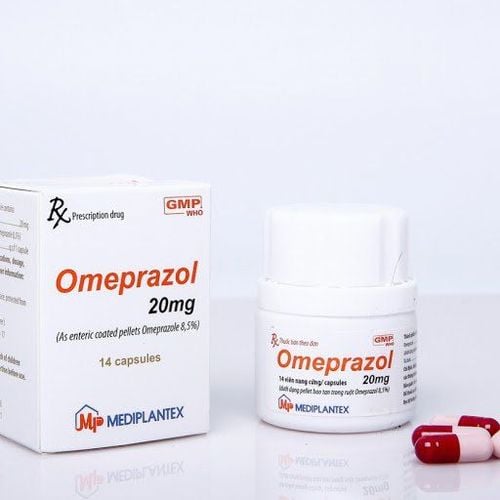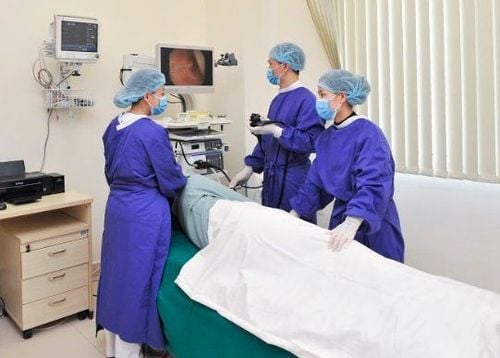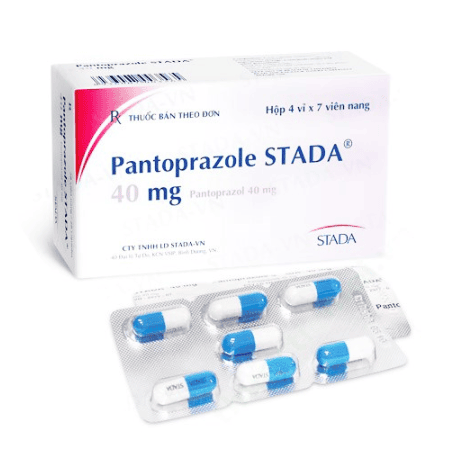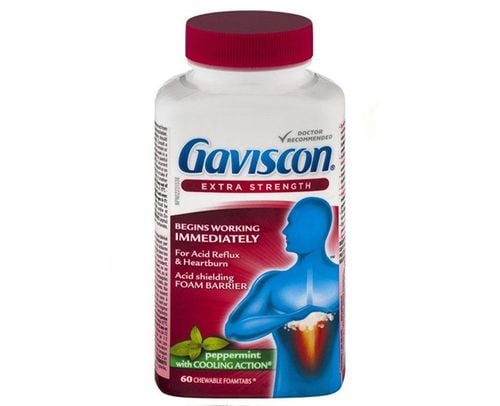This is an automatically translated article.
The article was professionally consulted by Doctor Department of Gastroenterology - Endoscopy, Department of Medical Examination & Internal Medicine - Vinmec Central Park International General Hospital.
Gastric polyps are often found incidentally during upper gastrointestinal endoscopy for another condition and only in very rare cases cause symptoms. However, diagnosing the cause and treatment, and providing appropriate management for gastric polyps are important, as some polyps can be potential for malignancy.
1. What are stomach polyps?
The stomach is the organ that receives food after chewing and swallowing. The stomach contains a lot of acid, which destroys bacteria in swallowed food as well as breaks down food into smaller pieces, aiding digestion. The innermost layer of the stomach has a layer of cells called the epithelium. Most gastric polyps are the result of abnormal growth of cells on the epithelial surface.
In other words, gastric polyps are abnormal growths that occur on the inner lining of the stomach wall. These lesions are completely harmless and do not cause any symptoms but are discovered incidentally during upper gastrointestinal endoscopy for another disease. However, in some cases, these may be potential lesions of cancer, especially in subjects with many risk factors.
2. Who can have stomach polyps and what causes stomach polyps?
Stomach polyps can be encountered equally in men and women of all ages. However, they tend to become more common in the elderly and especially affect people over 65 years of age. Meanwhile, certain types of polyps, such as adenomatous polyps, are more commonly found in middle-aged women.
Regarding the cause of stomach polyps, there can be many different reasons. Accordingly, anything that causes stomach cells to become abnormal can lead to polyp formation. Several causes of gastric polyps have well documented risk factors, including:
Chronic gastritis Helicobacter pylori infection Pernicious anemia Persistent damage to the gastric mucosa, such as from an ulcer Prolonged use of proton pump inhibitors, such as omeprazole

In addition, genetic factors also play a role in polyp formation. A person may have a higher risk of developing stomach polyps if someone in the family has had them. At the same time, the likelihood of getting the disease also increases if there are other genetic diseases in the digestive tract.
3. What are the symptoms of stomach polyps?
Most stomach polyps do not cause any symptoms. Usually, a person becomes aware of the presence of gastric polyps after having a gastrointestinal endoscopy for another medical condition. In it, the doctor uses a small tube, fitted with a light source and a camera, inserted into the mouth to view the entire lining of the upper digestive tract, from the esophagus, through the stomach to the first part of the small intestine. .
However, the incidence of symptoms depends on the type of polyp, and larger polyps may be more likely to cause symptoms, although these are often nonspecific:
Abdominal pain Nausea, vomiting, chronic anemia Symptoms of stomach obstruction, such as weight loss or severe vomiting Precancerous syndrome when stomach polyps become truly cancerous
4. How to diagnose and treat stomach polyps
Gastric polyps are rarely a suspected diagnosis. They are only found during endoscopy due to another problem in the stomach. With a small flexible tube, fitted with a light source and camera, inserted into the patient's mouth, the doctor will observe the entire lining of the upper digestive tract, from the esophagus, through the stomach to the first part of the intestine. immature and discovered gastric polyps.
Although the vast majority of gastric polyps, more than 90%, are noncancerous, certain types of polyps require further examination to ensure there are no precancerous cells or a high risk of malignant transformation. really. At this point, the doctor will combine a small tissue sample for a biopsy with an instrument made during the endoscopy. These tissues are then processed, stained, and examined in a laboratory to look for cancer cells.
Regarding the treatment, if it is just a single lesion, small in size, gastric polyp can be removed immediately during endoscopy. If the polyps are numerous, large in size, or have distinct macroscopic appearance, the diagnosis of cancer is difficult to exclude, and removal during colonoscopy is difficult to perform, the doctor will consider the indication for surgery.

In addition, the patient also needs other medical treatments to support the digestive tract such as antacids, limiting chronic ulcers in the gastric mucosa. At the same time, the presence of Helicobacter pylori bacteria in the stomach may also increase the risk of gastric polyp progression and an active Helicobacter pylori eradication regimen is necessary.
5. How to continue monitoring gastric polyps?
Depending on the type of gastric polyp on pathology, your doctor may recommend another endoscopy within a year to look for any new polyps. For patients with cancerous polyps, follow-up colonoscopy should occur every six months for the first three years.
If the patient has a family history of stomach cancer, the doctor may recommend that the patient need more frequent colonoscopy, every 1-2 years.
For patients under 40 years of age but with many polyps, the doctor may also recommend a lower gastrointestinal endoscopy procedure to examine the rest of the digestive tract, the colon and rectum.
In case it is suspected that proton pump inhibitors are the cause of gastric polyps, the patient should be prescribed by the doctor to replace with other anti-acid drugs. In addition, building a healthy, well-balanced diet, limiting stimulants is also a good thing to do, both to keep the digestive tract healthy and general health in general. In a nutshell, gastric polyps are abnormal growths in the lining of the stomach wall. The cause of stomach polyps is unknown, although they cause no symptoms, some cases can progress to cancer. Therefore, periodic examination and screening, especially in middle-aged or high-risk subjects, is necessary for early treatment and improved long-term outcomes.
Please dial HOTLINE for more information or register for an appointment HERE. Download MyVinmec app to make appointments faster and to manage your bookings easily.













